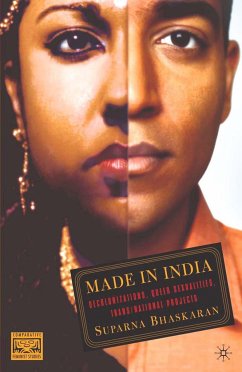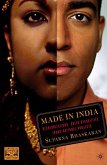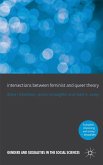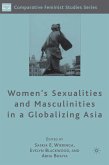Made in India examines seemingly disparate and high profile events in postcolonial India that captured national and transnational/diasporic interest since the 1990s: The emergence of the Indian homosexual, the new trans/national heterosexual woman, lesbian suicides, marriage and kinship contracts in small towns around India and the simultaneous evolution of the modern homophobia and lesbian NGOs. These events demonstrate the material, political, and cultural contexts within which postcolonial subjects negotiate their lived experiences within moments of decolonization and recolonization.
Hinweis: Dieser Artikel kann nur an eine deutsche Lieferadresse ausgeliefert werden.
Hinweis: Dieser Artikel kann nur an eine deutsche Lieferadresse ausgeliefert werden.
Made in India is a provocative and important contribution to queer diaspora and area studies. Working from the ever-globalizing present, Suparna Bhaskaran shows how Made in India is at once the result of commodity production in the liberal(ized) economy and of Indian nationalism's increasingly phantasmatic attempts to reinforce its sexual, racial and class boundaries in the postcolonial world.' - Kamala Visweswaran, Associate Professor of Anthropology, University of Texas
'Compellingly Innovative. Highly readable. Suparna Bhaskaran has gifted a most skillfully imagined ethnography. She has taken the word queer through a transnational journey that is at once intimate and political, and, in so doing, she has fashioned a new and expansive vocabulary about the formation of sexual subjectivities in neocolonial India. This is indispensable reading for anyone interested in the radical transformation of what it means to be queer.' - M. Jacqui Alexander, author of forthcomingPedagogies of Crossing
'Compellingly Innovative. Highly readable. Suparna Bhaskaran has gifted a most skillfully imagined ethnography. She has taken the word queer through a transnational journey that is at once intimate and political, and, in so doing, she has fashioned a new and expansive vocabulary about the formation of sexual subjectivities in neocolonial India. This is indispensable reading for anyone interested in the radical transformation of what it means to be queer.' - M. Jacqui Alexander, author of forthcomingPedagogies of Crossing








